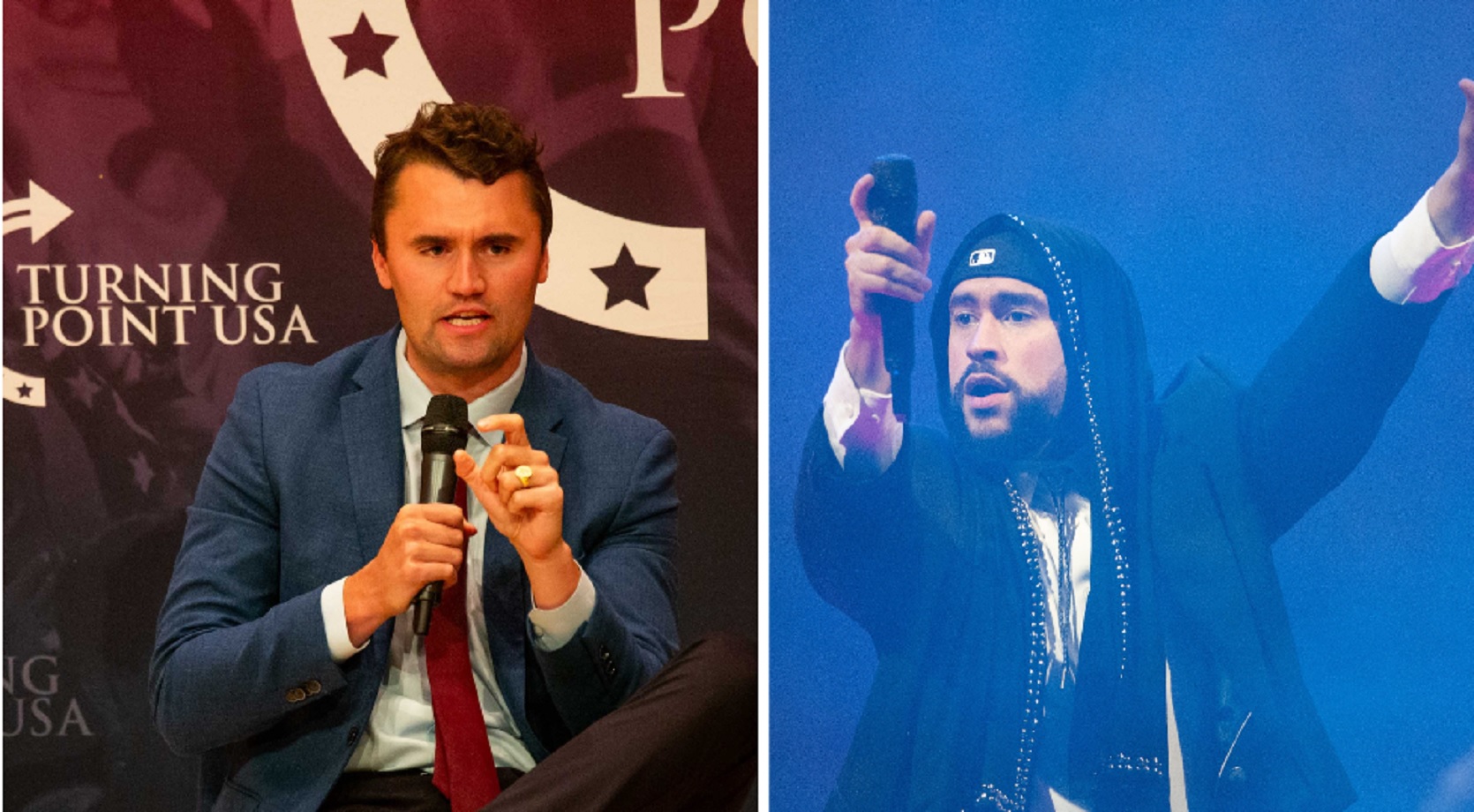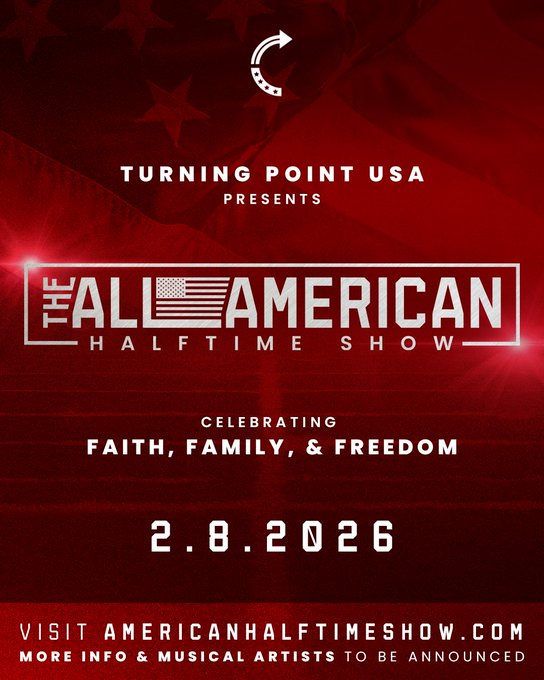In a move blending patriotism, culture, and controversy, Turning Point USA has announced its own “All American Halftime Show” — a rival performance set to air on the same day as Bad Bunny’s Super Bowl halftime show in February 2026.

Branded under the slogan “Make Super Bowl American Again,” the event is designed to celebrate faith, family, and freedom — themes once championed by the group’s late founder Charlie Kirk, who was assassinated in September 2025.
Now led by Erika Frantzve Kirk, Charlie’s widow, the conservative organization says the halftime alternative will feature American-born artists across country, rock, and Christian genres.
“This isn’t about politics — it’s about pride,” Erika said in a statement. “Charlie always believed America’s music and values deserve their own stage.”
A Patriotic Counter to the NFL’s Global Focus
The announcement comes after months of debate surrounding the NFL’s choice of Puerto Rican superstar Bad Bunny as the 2026 Super Bowl headliner. While millions celebrate his success, critics — including many within conservative circles — argue the league is ignoring homegrown talent in favor of international appeal.

Turning Point USA’s upcoming show seeks to fill that gap, promising a “family-friendly, unapologetically American experience” streamed live across multiple platforms. Early teasers hint at surprise guest performances, veterans’ tributes, and visuals honoring Kirk’s lifelong mission to “reclaim culture for America.”
Culture War Meets Entertainment
Reaction online has been sharply divided. Supporters see the event as a refreshing alternative to what they call Hollywood’s cultural dominance, while detractors label it a politically motivated stunt exploiting Kirk’s legacy.
Regardless of the criticism, the project underscores a broader trend: political movements are no longer content to influence policy — they want to shape pop culture itself.
As Super Bowl Sunday approaches, the question remains:
Will Turning Point USA’s “All American Halftime Show” ignite a cultural revival — or simply deepen America’s musical divide?

Leave a Reply